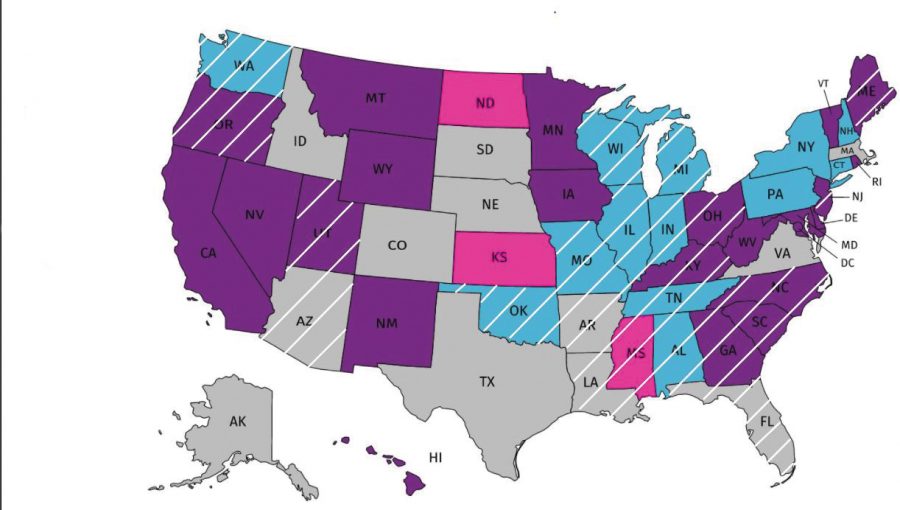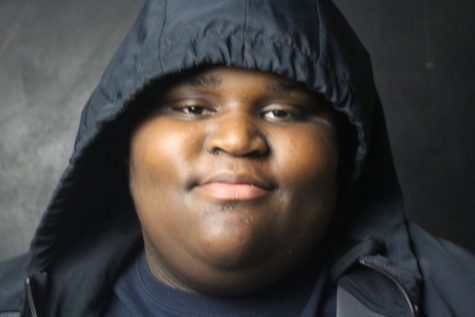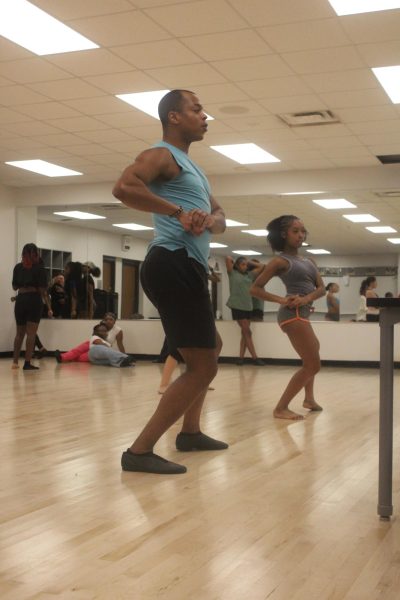Shedding the light on the sex education system in Indiana
The sex education curriculum in Indiana does not currently teach more proficient ways to prevent against STDs and there has been an increase in teens who have contracted them.
Senior Bastian Bradley moved to America from Germany in 2018 and has been attending Lawrence North for a little over a year now. During her time in Indiana, she has noticed differences in, not only the culture, but the education system and how things are taught, specifically in sex education.
“Only being [in America] for a year at least, I wasn’t told about any sex education, nor was there a class for it. And you would think health would be that class, but it wasn’t,” Bradley said.
Bradley’s school in Germany promoted and encouraged safe sex. While attending school there, she was given extensive information about sex and how to use contraceptives, such as condoms and different forms of birth control. If a student had a personal issue, that student would be connected to the closest hospital and a doctor to confirm that he or she was safe. Students had constant access to contraceptives to ensure that they would be able to reduce the risk of sexually transmitted diseases and pregnancy.
“We had an entire system where we learned about sexual intercourse, how to deal with STDs, birth control, and all that. Not only did we have that, we also had nurses to provide that. So you could go to the nurse and get condoms for free, or if you wanted to be on birth control they would be able to give you that,” Bradley said.
As the season for legislation begins, the matters of sex education resurfaces. In some states, legislators are re-evaluating the best way to introduce sex education to students and what the teachers’ roles should be in it. In Kentucky, lawmakers want to teach inclusive comprehensive sex education to every grade K-12. In Washington, comprehensive sex education is close to becoming mandated for the entire state.
Sex education is the teaching of human sexual anatomy, sexual reproduction, sexual intercourse and other aspects of human sexual behavior. It is used to help inform and motivate people to make healthy decisions regarding sex and sexuality. According to the University of Southern California, only 25 states in America require sex education to be taught in schools. 13 states require that the information given to students be medically accurate. In Indiana, sex education is not mandatory, nor does the information have to be medically accurate. Teachers in Indiana must stress abstinence, and this abstinence-only sex education does not allow teachers to provide details about contraceptives.
“We teach total abstinence, even though we are not naive enough to believe that all of our students practice it. We do not teach birth control or anything like that,” health teacher Rob Church said.
Standards in Indiana
The state of Indiana is required to teach that abstinence from sexual activity is the only certain way to avoid out of wedlock pregnancy, STDs and other associated health problems as cited in Indiana Code 20-30-5-13. The standards on how sex education is taught and what can be taught is decided by the state, not the department of education.
“There are state standards that go along with the health curriculum that then help our teachers better understand what is to be taught or what is not to be taught in public education,” principal Brett Crousore said.
These standards may not require sex education to be taught, but it does enforce educating students on HIV and other sexually transmitted diseases. The curriculum for sex education in Indiana consists mainly of the understanding of the sexual reproductive systems, diseases or infections that can be contracted through sex and the stages of development throughout a pregnancy. They provide a foundation of information for students and give them reliable resources so that they may build upon that foundation.
“We don’t really go into it in detail. [We] just want to give them a foundation on where to find stuff, so if questions come up, they can explore into that. It’s not to gross them out or scare them, but to really tell them ‘Alright, this is what you have to know. This is what you have to prevent,” health teacher Gerad Good said.
Abstinence-only teaching is used to discourage students from being sexually active and to reduce the risk of contracting sexually transmitted diseases and infections. But according to the Indiana State Department of Health, nearly one third of Indiana high school students are sexually active, and there has been an increase of teenagers contracting STDs such as Chlamydia, Gonorrhea and Syphilis.
“As a professional educator, I think when people are not educated, they make choices with an absence of information or with a plethora of bad information and that typically decreases the age of first sexual contact, which can be very bad. In all reality, people are going to have sex no matter what, and we should educate them about sex,” biology teacher Beth Denson said.
Teaching that abstinence is the only way to establish a mutually faithful monogamous relationship in the context of marriage can create a stigma for students. A student may feel guilty for not practicing abstinence. This can create a divide between the student and their guardian and cause them to not seek guidance and feel isolated in their situation.
“I think that affects them to either rebel or be ashamed if they had not practiced abstinence, which leads to, if a teen gets pregnant they don’t tell their parents, they don’t seek for help because they feel ashamed. They feel they can’t go to anyone for that, and I think that’s a really stupid thing to do,” Bradley said.
Although teachers have limitations in their curriculum, they are allowed to answer a student’s personal questions. The questions are often derived from information they gathered from their peers or from the internet, but this information is not always factual. This causes misinformation and misconceptions about sex to spread.
“A lot of people like to say a lot of things, which leads to a lot of misinformation and a lot of miscommunication, like I wouldn’t say that you should trust just one source of something or a website because it might not be the right information. People get things wrong all the time because you go on the internet and then you hear someone say one thing and that’s not true,” Bradley said.
While it is not taught in schools, there are ways to get accurate information. Teachers can answer a student’s question and guide them to reliable sources for the questions they don’t know.
“We have different places here in the community that we have students access and they gather information just so they feel they are included in whatever may or may not be taught here at Lawrence North,” Church said.
Inclusive Sex Education
Inclusive sex education addresses sexual health topics amongst LGBT groups. It is often not confronted in health classes and can risk the safety of these students.
“It is important that all students are aware on how to have safe, healthy realtionships and sex no matter what. If you’re having sex with someone who has a penis vs. a vagina vs. something in between, the same basic steps are all nessesary, and it’s important that everyone is educated just for their ability to safely exist,” Denson said.
Indiana’s laws do not explicitly state matters of inclusive sex education, meaning that the individual districts have the power to decide whether or not to include.
“[Inclusive sex education] is being discussed at the district level. It’s being discussed as far as if that’s something that they want to actually add to the curriculum or not. It could take a few years before any decisions are made,” Church said.
However, the school district believes that inclusive sex education is something to be discussed at home or with a to be discussed at home or with a professional due to the potential backlash from the community.
“There are some things we feel we as a school district feel are best taught at home. Because this can be as you know, a very touchy, controversial in our society and as a school we got to figure out for our community, what’s best and what’s right,” Church said.
How It Can Change
The curriculum is subject to change. There have been discussions on the sex education and what should and should not be included. The district must first talk to experts before implementing these decisions.
“I think that’s talking to the experts in the field, to find out what is it that children need. What is it? And I think that’s identifying that first and then beginning to determine why. Why do they need that in the schools? And, you know, the argument is always going to be what is taught in the home versus what is taught in the school, in type of topics,” Crousore said.
There are different opinions across the board on how sex education should be taught and whether it should be taught in school or at home. Ultimately, that decision is decided by the community.
“It all revolves around also home and parents. Some parents would be all gungho and for it and some wouldn’t, and we have to decide as a community what our community wants and what is right for us to teach,” Church said.
Bradley believes that there is an absence of information and acception in the way sex education is taught in Indiana. To her, this lack of information will leave the teenage population unprepared once they go out in the world.
“It’s missing a lot in Indiana, it’s missing a whole lot. I think we should be more open to it. Open to teaching teens at a young age, at least like freshman and up and up about what they should do for sex education, how they should go out with things and know that when they’re in the real world, they’ll be ready for it,” Bradley said.













